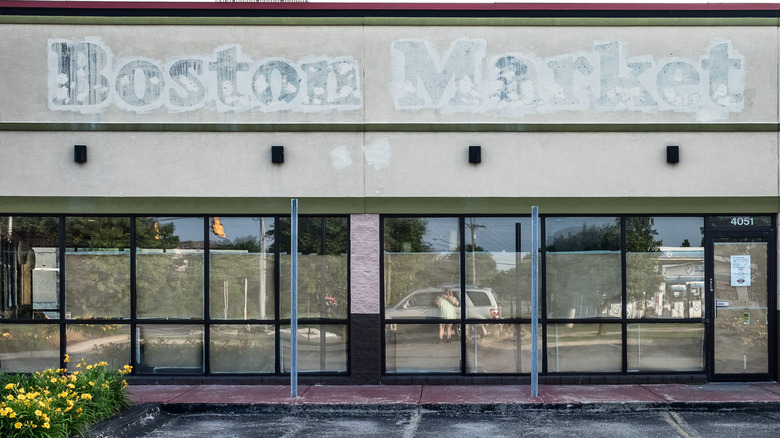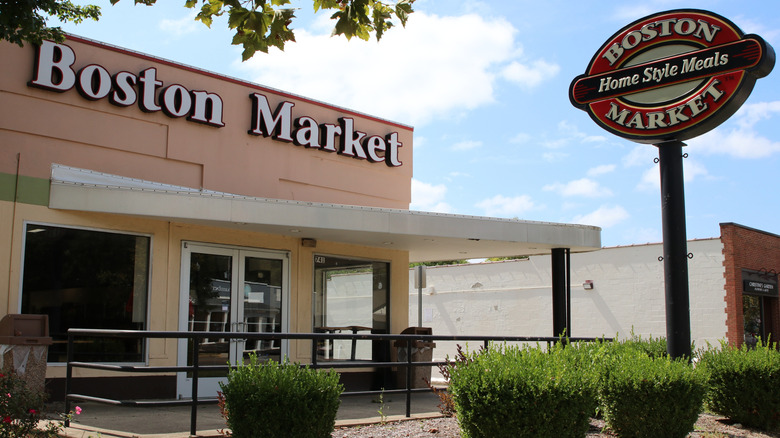What Actually Caused The Downfall Of Boston Market?
The once-acclaimed Boston Market restaurant is disappearing before diners' eyes. The chain, which pioneered rotisserie chicken as a healthy meal concept starting in 1985, shrank to just 16 U.S. locations as of this writing. While it would be simple to point the finger at increased competition from the fast causal genre Boston Market helped invent, rising food costs driving consumers to other choices, or customers' preference for rotisserie chicken at Costco and grocery stores, the reality is that Boston Market fell to damaging business practices.
Boston Market has changed hands several times, most notably being owned by McDonald's from 2000 to 2007, which also had a major stake in Chipotle during that time period. The chain encountered financial setbacks early on as it rapidly grew to 1,200 locations, leading to its declaring bankruptcy in 1998. With each sale — from McDonald's to a private equity group to its current owner, the Rohan Group, under its Engage Brands banner — more Boston Markets shuttered as new leaders attempted to revitalize the brand and cut costs, and the chain eventually achieved the unwanted goal of closing the most locations in 2022.
Instead of investing in innovations, Boston Market started spending less on ingredients to be fiscally competitive with rising fast casual stars like Panera Bread, which led to a drop in product quality. As resources dried up and payments to suppliers stopped, stories began to spread of employees purchasing food ingredients themselves to keep stores open. Rents on locations went unpaid, including the chain's Denver, CO corporate headquarters, which was seized for nonpayment in 2023. Promises of new menu items never materialized as still more Boston Markets closed over 2024.
Boston Market's current owner has been sued many times
Boston Market's press relations were virtually nonexistent after its latest purchase in 2020 — that is, until news broke of increased legal woes for the brand. Since Rohan Group took over operations, Boston Market and its owner, Jay Pandya, has been sued at least 150 times. Pandya is no stranger to legal troubles: His tenure as owner of Corner Bakery also ended in bankruptcy, and allegations surfaced that he was not only siphoning profits from the company but also placing family members in C-suite roles, as SSCP Restaurant Investors discovered after taking ownership of Corner Bakery in 2023.
The biggest lawsuit comes from major food supplier US Foods. In its 2023 filing, US Foods accused Boston Market of falling behind on their bills for over a year, resulting in the chain owing millions of dollars to the supplier. In January 2024, the court ruled in favor of US Foods, meaning Boston Market now had to cough up $11.9 million, but US Foods may have to get in line. Boston Market's bank pushed back on the court's request to distribute funds to the supplier, because there were seven other creditors awaiting payment across multiple business sectors and states.

